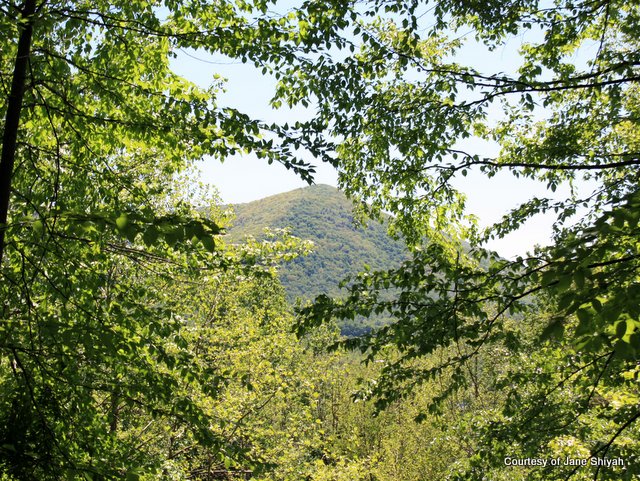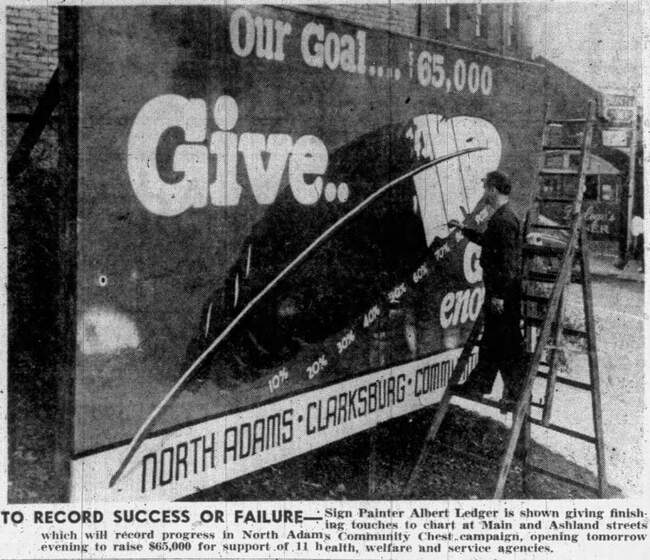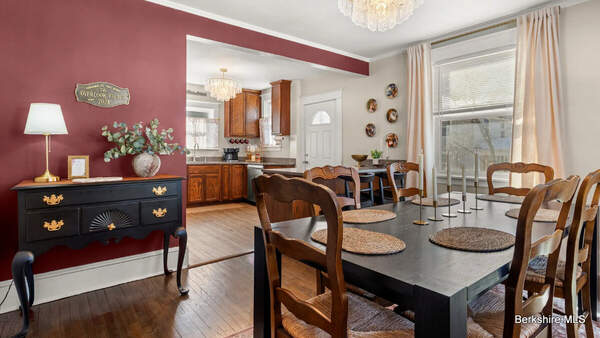Net Zero Co-Housing Community Proposed For North Adams
.JPG) Jane Shiyah is leading a group in the development of a co-housing project with the goal of having a multigenerational, close-knit neighborhood. Jane Shiyah is leading a group in the development of a co-housing project with the goal of having a multigenerational, close-knit neighborhood. |
NORTH ADAMS, Mass. — A net zero co-housing community focused on re-creating the close neighborhood experience of the past is being planned in the city.
Jane Shiyah, a retired school counselor and founder of the Northern Berkshire Co-housing Community, explained that co-housing could be a new way to live in North County. She said co-housing homes are clustered around shared common areas and buildings that allow people to live together in economically and environmentally sustainable homes in a traditional, tight-knit, diverse community.
She said the proposed community, off Massachusetts Avenue in historic Blackinton, would be far different than a dormitory or condominium set up because people would own their land, their homes, and help design the community and common area.
"The homes are clustered around an open space so you have this pedestrian free space where kids can play and if they like dogs they can run around," Shiyah said. "The elders can sit on their front porch, and it's really a way of bringing the neighbor back into the neighborhood."
She said co-housing represents the "best of both worlds" and allows the collectiveness of community living but the privacy of a private home.
Shiyah said the use of common areas allow people to build smaller homes that fit their needs and allow them to share other resources such as a common cooking areas.
"If you are the kind of person who likes to share meals you can cook together or if you are a single mom you might come home from work and someone has cooked dinner for you," she said. "You don't have to have that extra space in your house and can share it with other people; it makes sense economically."
Common areas would be designed by the residents and currently people have showed an interest in having a common yoga room, children's play room, a workshop, exercise area, common dining areas and sitting areas, and guest rooms.
The neighborhood would be connected with walking paths and community gardens.
Shiyah noted that the community would be "net zero" in that it would have no energy costs. She said this element comes from Colin Murphy, owner of Murphy Builders and Remodeling, who also offered to donate 50 acres of land for the project.
"He had never heard about co-housing," she said. "I talked to him and immediately he really saw the benefit of it so he's donating the land and overseeing the building of net-zero homes. It is his passion."
She said this eco-friendly mentality fits in perfectly with the whole scope of the project that focuses on minimizing environmental impact and sharing resources.
Co-housing may be new to the Berkshires, but the concept has been around for awhile. Pioneer Valley Co-Housing in Amherst, for example, was built in 1994; several other co-housing developments have been built or are in the planning processes around Northampton.
She said many co-housing projects fail to start because land is often difficult to purchase and find so the organization is already set up for success. She said the land is beautiful and is located in what she believes will be a "cultural corridor" in North Adams with future developments such as the proposed redevelopment of the Cariddi Mill and the Thomas Krens contemporary art museum at the airport.
The community can capture the sense of neighborhood that used to exist in North Adams, Shiyah said, when neighbors helped each other, and shared. She said oftentimes today people do not even know who their neighbors are.
"I am drawn to community," she said. "When I was younger we would play in the streets and ate lunch together and I loved that. I think it is important and we lost that so this is a way of recreating that."
She added she hopes the community draws people from different generations, cultures, incomes and lifestyles and truly be diverse.
Shiyah was drawn to co-housing for a more personal reason. Her daughter was diagnosed with a chronic illness that leaves her mostly homebound, and with today's trend toward neighborhood isolation, the homebound often become lonely.
 The co-housing development would be built on 50 acres off Massachusetts Avenue. The co-housing development would be built on 50 acres off Massachusetts Avenue. |
She sees co-housing as a way for those who are not mobile to be supported, taken care of, and allow them to participate in a community.
"One of the things I have learned about people with chronic health conditions is that the social isolation can be as bad as the physical pain," she said. "This allows them to simply put their bathrobe on and walk to the common house. ... It's a chance to have a community you normally would not have."
She hopes that the community can serve as a "haven" for those with specific sensitivities and has proposed that a quarter of the homes be set aside for those with medical concerns and chronic illness.
She said people are responsible for building their own homes and everyone pitches in for common areas. She anticipates 35 housing units, and the more people involved, the less it will cost.
Those who want to get involved can seek equity membership with minimum investment of $1,000 toward preconstruction costs such as engineering and permitting. Shiyah said those who pay more will have first say on where they want to live.
"Explorers" who are still on the fence can donate $500; "friends" can make small donations or donate services. The group is seeking nonprofit status to open the door for possible grant money.
Those interested can contact her through the website or can attend one of the monthly meetings held at Congregation Beth Israel. The next meeting will be Saturday, Sept. 26, at 1 p.m.
Shiyah said the project is still in its early phases but judging by the interest, suspects it will take off fast.
"Whenever I tell people about this they always say 'what wonderful idea,'" she said. "I think it strikes the connectedness we are looking for, but the step to thinking it is a good idea to creating it is a big one."
Tags: co-housing, housing development, Real Estate,















